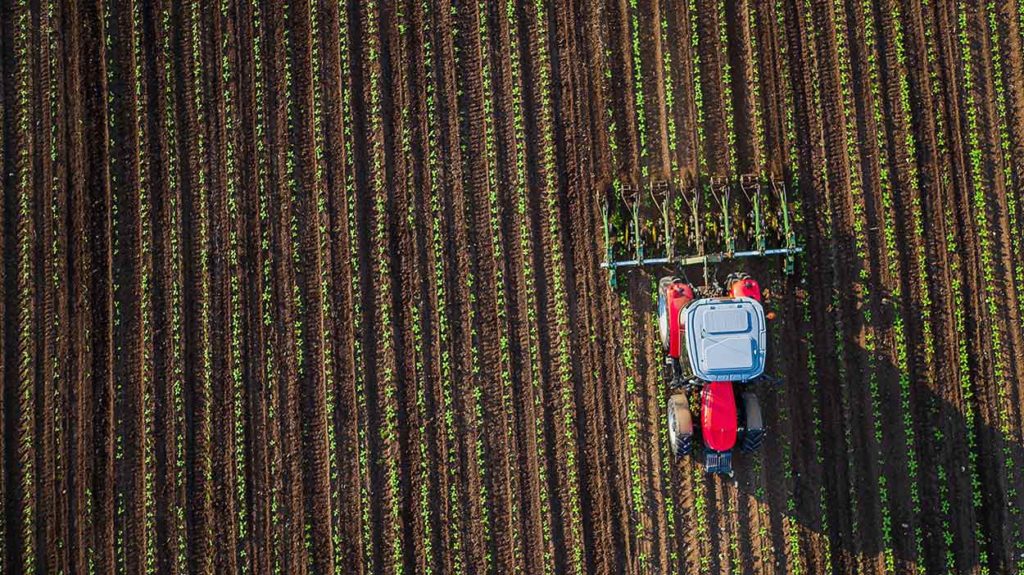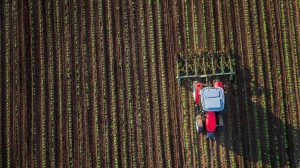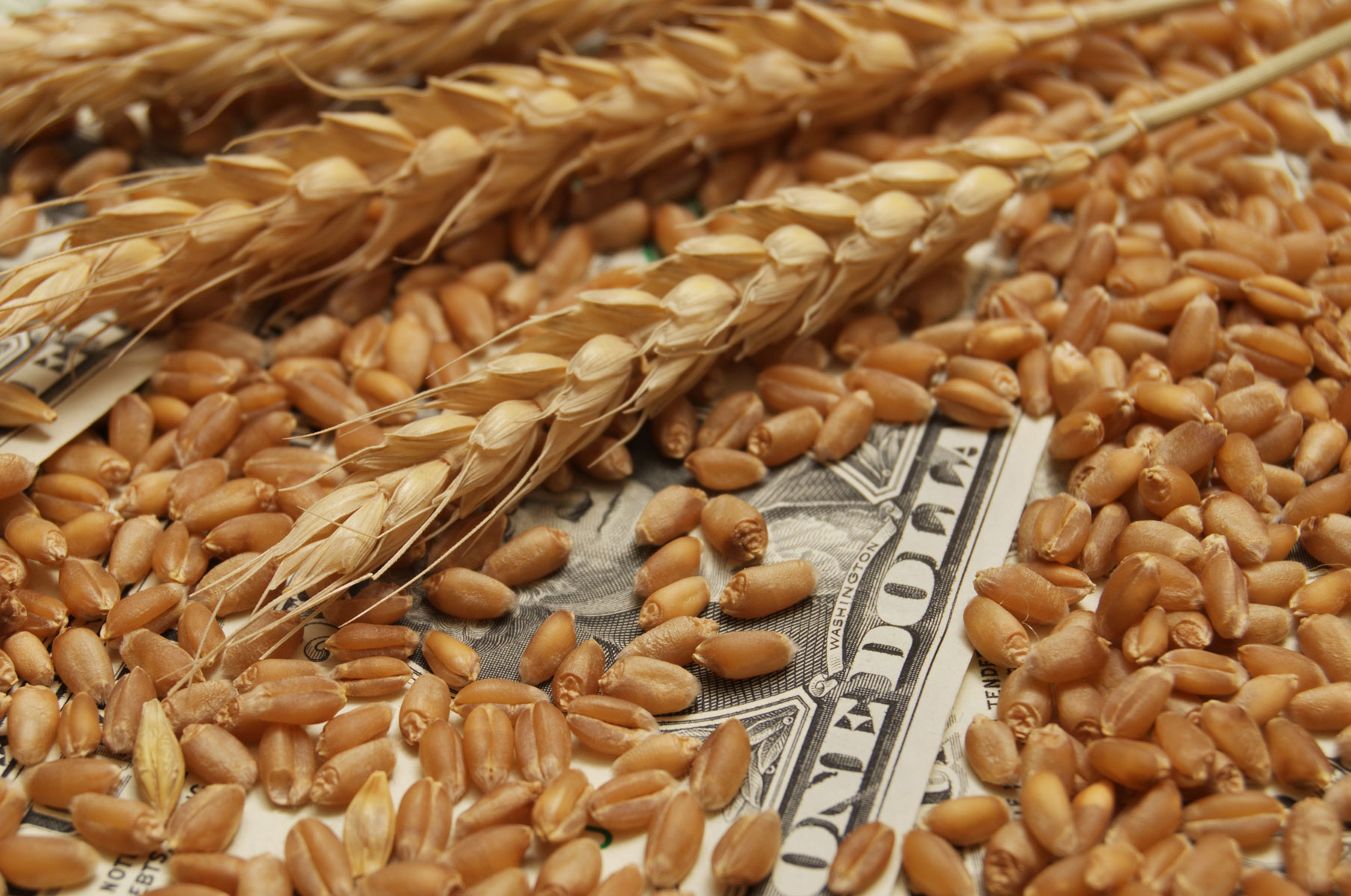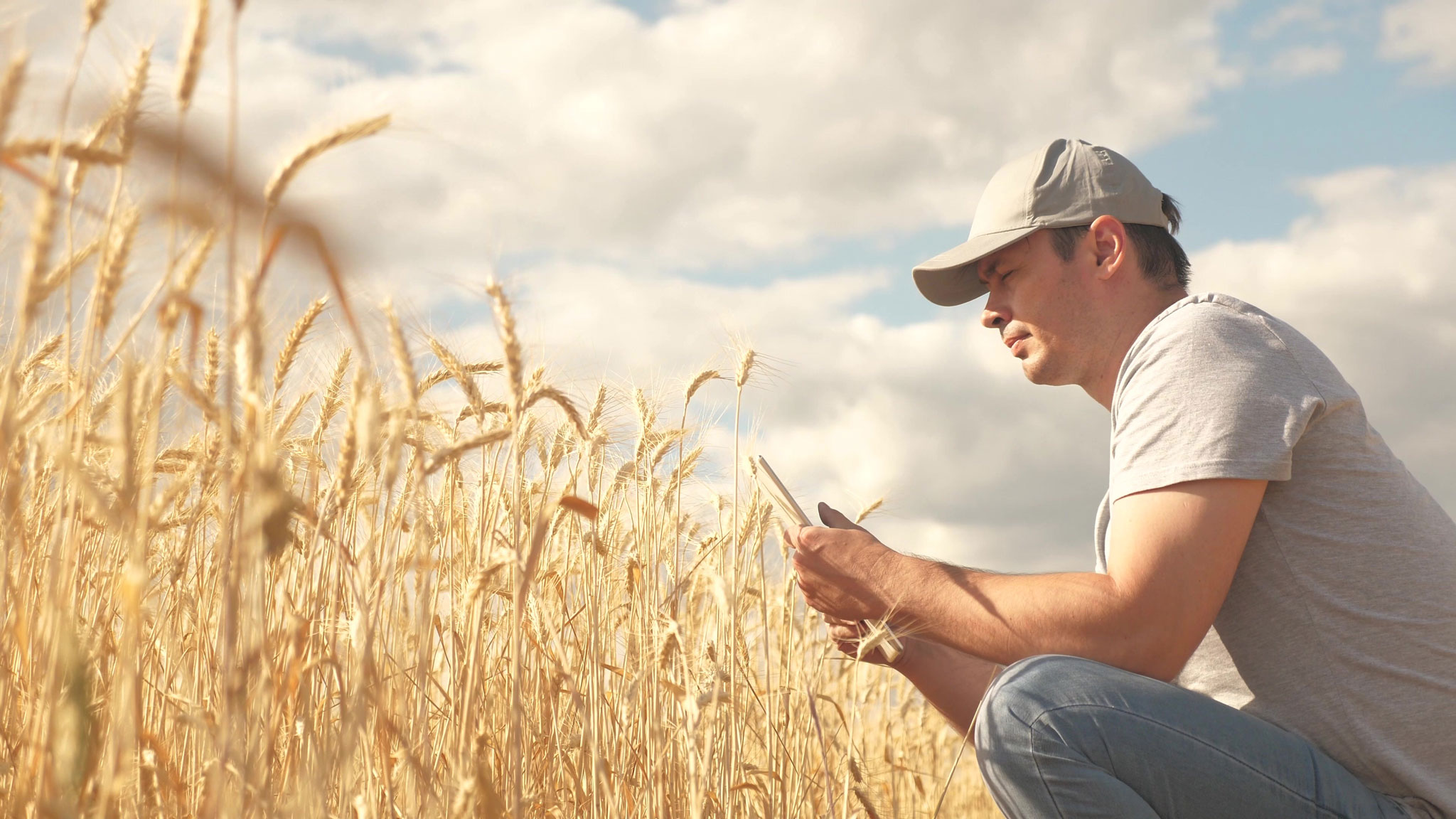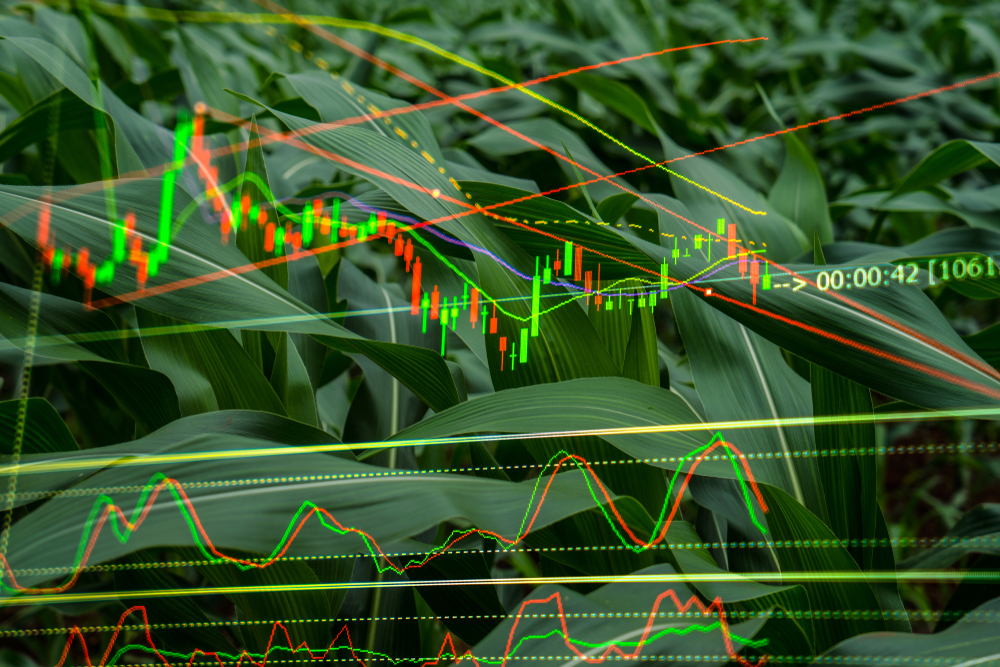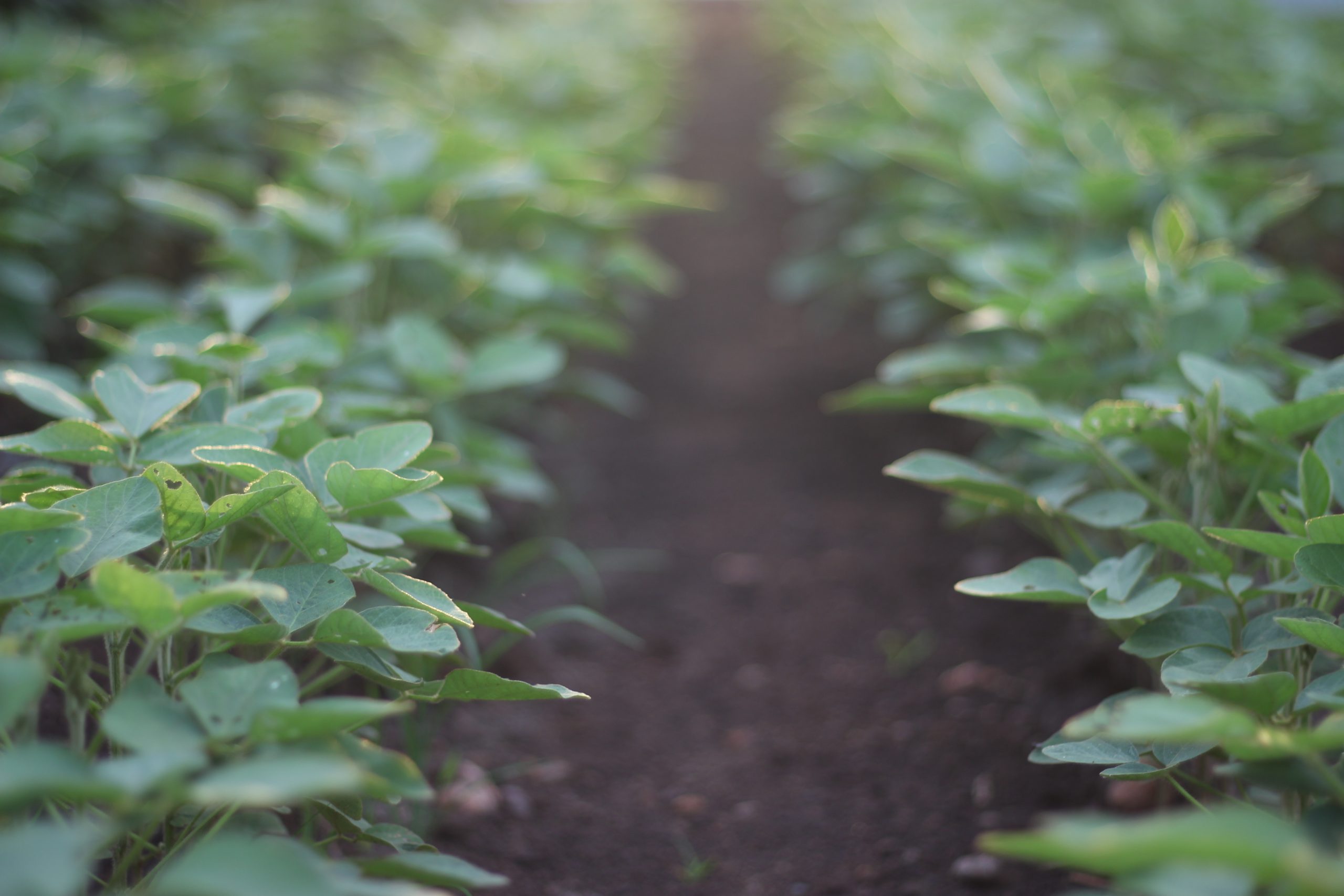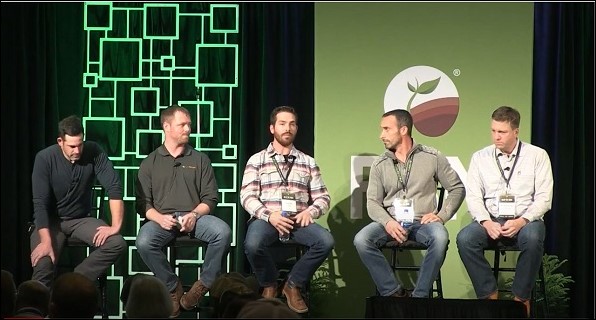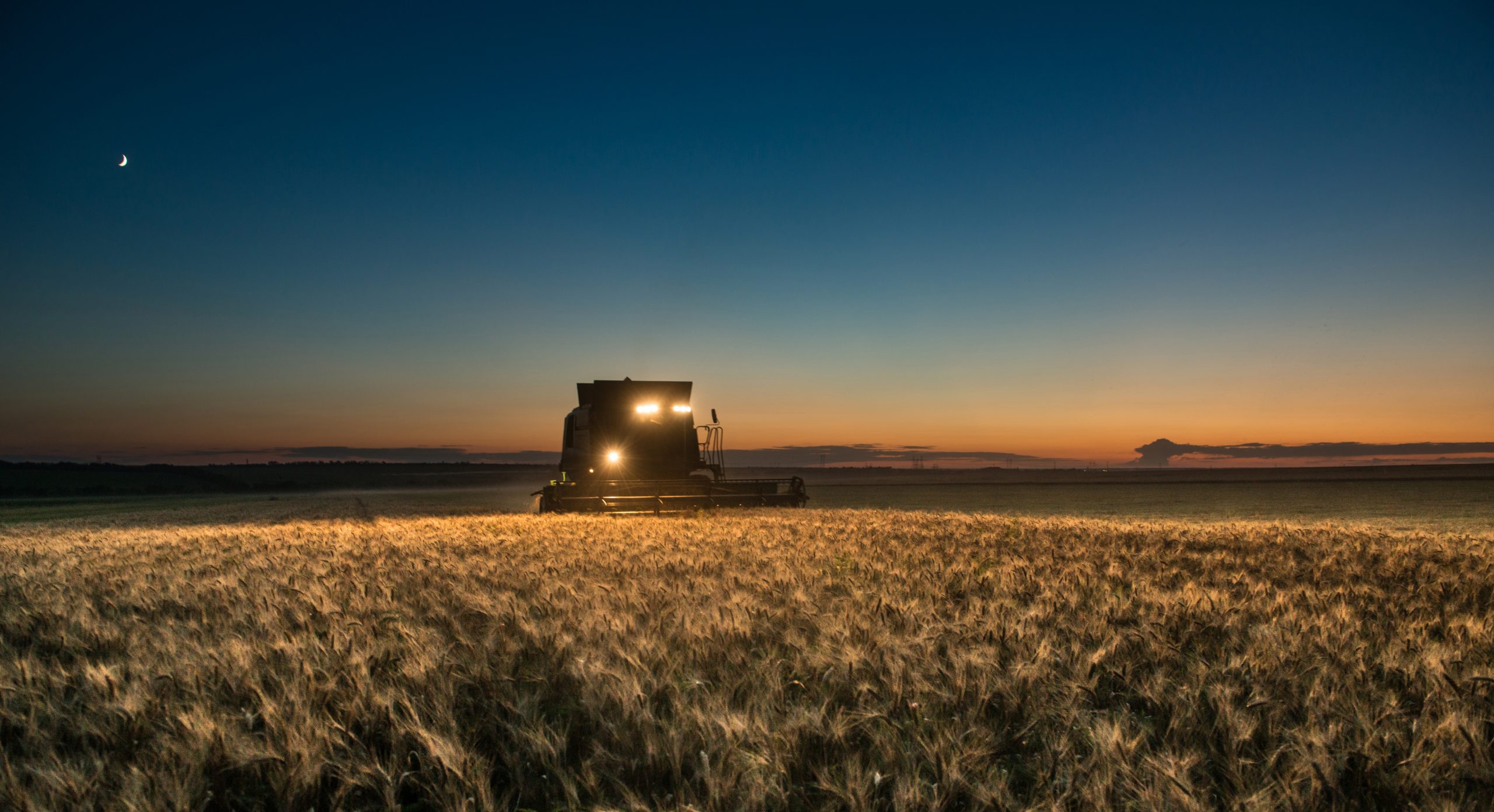- Published On: June 23, 2020
- Author: Bryce Irlbeck
With so much economic uncertainty caused by the COVID-19 pandemic, you may be wondering: Is now the right time to transition into organic crop production? Is this the right time to increase the number of organic acres you’re already farming?
My answer, yes.
Current market conditions, falling commodity prices for conventional crops and somewhat lower prices for organic corn among them, make this an optimal time to seriously consider the advantages of organic row crops. If you’re thinking about transitioning to organic, making a decision today can help ensure your independence for years to come. And, if you’ve already got organic acres in transition or certified, this could be the right time to expand your operation for increased profits.
Why organic row crops?
As discussed in our recent blog post about the impact of COVID-19 on the organic market, it’s widely held that demand for organic food demand will continue to grow at an above-average rate. This consumer trend will continue driving prices for organic corn, organic soybeans, and organic wheat well above conventional crop prices and can provide better break-evens over the long term.
Conventional farming, on the other hand, continues to grapple with low commodity prices. The worldwide supply easily meets demand thanks to strong growth in conventional crop production. It is difficult to imagine a scenario in which conventional crop prices will rebound any time soon.
Given these circumstances, ask yourself: Can you afford not to look into organics right now?
Given the challenging outlook for conventional crop production, many American farmers are faced with challenges. But they also have an opportunity to profit from organic production. The current environment demands famers look at ventures that may not have seemed feasible when commodity prices were stronger.
Organic acres can be scaled up at a pace that’s right for you.
One of the key benefits that organic farming provides is the ability to scale your operation and open additional revenue streams at a pace that makes sense for you. You don’t have to go all in from day one. In fact, conventional crops and organics can both be part of your operation for the short term or indefinitely. If at any point during the transition process you decide organics are not the right decision for your farm, you can easily return to a fully conventional operation.
Still, initiating the transition process is almost always worthwhile because it not only gives you a path to certified organic production, it also offers you an opportunity to increase your margins and your profits in a range of market conditions.
But are organic row crops right for your farm? Ask yourself these three questions.
Organic farming is not a good fit for all operations. We believe it is a worthwhile endeavor and provides better returns over conventional for most farmers, of course, but it is worth asking yourself the following three questions before making any commitments:
1. Are your fields well suited for organic production?
Fields that are larger, relatively flat, and not irregular in shape are generally better for organic row crop production. This is because it’s easier to do tillage work on them as compared to fields that have a lot of point rows or extreme slopes.
You’ll also want to be sure your fields include areas that don’t get too wet over prolonged periods of the season, especially around planting when you’ll need to get in to do fieldwork. For this reason, it can be much more challenging to see optimal results with organic crops on fields with river-bottom or heavy gumbo soils.
2. Can you build and support the necessary management capacity?
The farmers who enjoy the most success with organic production have good management skills and are able to execute their plans. Depending on the size of the operation, this may include a team of field hands to help during the busiest times of year. There are more details to oversee when compared to a conventional system, too, and thus good management is a necessary component of a successful organic farm.
3. Are you willing to learn and adapt as you build your organic operation?
Organic farming requires an open mind and a willingness to try new approaches, such as planting crops you haven’t grown before and utilizing novel crop rotations. To be successful in organics over the long term, you can’t rely on the tried-and-true (but oftentimes razor-thin margin) corn-soybean rotation employed in conventional farming.
As with any venture that looks for new ways to achieve outstanding results, transitioning to organic farming or expanding an existing organic operation depends on embracing the learning curve. Everything you try is not going to work as planned, especially not the first time, but there is almost always a suitable solution or workaround to be found.
Consult with experts before making any commitments
If you’re interested in transitioning your acres to organic production or enhancing your current organic production, we strongly recommend that you consult with an advisor like AgriSecure. No matter what stage you are in, it’s never too early or too late to consult with experts.
While there’s a vast amount of information available online about organic farm production, there are a number of reasons talking to us can speed up your research and give you peace of mind along the way.
It’s not just any farm, it’s YOUR farm
When we visit your fields, we can point you directly to resources that will help answer questions specific to your soil and growing conditions. Furthermore, because we were created by farmers for farmers, we have first-hand organic farming knowledge and experience. We know what has worked and what has not worked, and I’ve seen it myself on my own farm.
Plan the work and work the plan
At AgriSecure, we can help you create the all-important transition plan. This will outline what your crop rotation and cost structures over 5 to 7 years can look like. By giving you the ability to make informed decisions about crop rotations and how they would work on your farm, you will avoid many of the “rookie mistakes” made by some of our founders (including me!) when they had no one to turn to and had to figure it all out on their own.
Financial backing
A plan that has been developed by an experienced organic advisor will go far in convincing your banker or lender that your plans to transition or expand are viable and realistic. It demonstrates that you are able to manage risk and, as a result, it puts the odds in your favor by increasing confidence there will be a return on investment. The more prepared you are for discussions with bankers, the more likely they will be willing and ready to back you.
Teamwork matters
One often overlooked factor in making the decision to transition to organics is gaining consensus on the farm. Our experience shows that meetings with service providers like AgriSecure provide the most benefit when all the key decision makers are included in the initial consultation. In this way, we can address the most pressing questions and concerns, and serve as a valuable source of experience and insight no matter what the ultimate decision may be.
The time for action is now.
As the Chinese proverb goes, “The best time to plant a tree was 20 years ago. The second best time is now.”
This also holds true for organics. Moving conventional acres to organic farming is a significant change and your decision will be based on many hours of research, discussion, and analysis along with consultation if you choose.
Still, it’s important not to spend all your time just thinking about it! At some point, you must jump in and take action to make the dream a reality.
AgriSecure can help
AgriSecure wants all farmers to be successful in the long term – whether conventional, organic, or a combination of both. We will provide honest insights that help you decide whether organics is a fit for your operation. We never advise anyone to invest their time and resources in organic production if we don’t believe it will be successful.
But, if you determine organics can provide your farm the independence and profitability you’ve been seeking, we are ready to partner with you and can provide guidance every step of the way. Schedule a free consultation today to get the discussion started.
By Bryce Irlbeck, AgriSecure Founder and Owner of B&B Irlbeck Farms
Related Articles
-
Imports Have an Impact on Organic Crop Prices: Here’s Why
Organic soybean prices are skyrocketing. The Jacobsen reported that prices were up to $32 per bushel in the Midwest in May 2021. What’s behind this impact on organic crop prices? And why aren’t organic corn premiums keeping up? In short: it’s all about supply and demand, especially imports, says David Becker. David is an analyst […]
-
New Options Offer Farm Loans for Organic Transition
If securing farm loans for organic transition feels daunting, we have some good news. It’s not as hard as it used to be. In fact, there’s a number of new options that could provide a solution for you and your operation. Traditional lenders, farmland investors, non-profits, and even big food companies are starting to create […]
-
Organic Farming Loans Support Growers during Transition
Ask a farmer what’s keeping them from transitioning to organic row crops, and you may be surprised to hear a common answer. Finances. It’s often a struggle to find organic farming loans tailored to their needs. Yes, organics offer excellent premiums and can bring long-term profitability. But first you have to get through the 36-month […]
-
Organic Breakevens: What to Know and How to Calculate
If you’re thinking about organics, you’ve probably debated whether it’s going to pay off — literally. Yes, the price premiums are good, but you’ve heard your yields will take a hit. How can you predict profitability? The answer: calculating your organic breakevens. What are an organic breakevens? Simply put, it’s a way to calculate what […]
-
Know Your Numbers to Push Crop Profitability
Yield is often the top priority in farming. The truth, though, is that the highest yields will not necessarily result in the highest ROI. And this is especially the case for organic production. We know good execution results in the best yields, but the best way to maximize your crop profitability is to know your […]
-
6 Ways to Protect Organic Profits in Uncertain Times
Economic uncertainty hits all sectors of the agriculture industry, including organics. The good news? It’s possible to safeguard your organic profits. For a start, it’s even more important for organic farmers to focus on executing their operations really well. The better the execution, the better you can weather the market conditions and remain profitable. Here […]
-
5 Steps for Financing the Transition to Organics
Profits. They’re one of the primary reasons farmers decide to move into organic production. Financing the transition to organics, though, can be one of your biggest hurdles. That’s why the support of a banker or ag lender can be a lifeline for farmers looking to get into organics. The right backing helps you build an […]
-
4 Keys to a Strong Organic Fertilizer Strategy
Questions about an organic fertilizer strategy are common in organic farming. How do I provide enough nutrients? In particular, nitrogen. How do I manage my crop and soil without using synthetic fertilizers? Fertilizer can come from a variety of organic sources, including animal waste, decomposing plants, and nitrogen-fixing crops like soybeans and clover. So it’s […]
-
80 Million Millennials Can’t Be Wrong: Farmer Panel
80 million millennials are a part of the driving force behind the rapid growth of organic food demand. So why aren’t more farmers transitioning into a system that sees premiums of 2x over conventional and profitable margins? In a panel that took place at FBN’s Farmer2Farmer V event, AgriSecure co-founder and organic farmer Bryce Irlbeck […]
-
The Impact of COVID-19 on Organics Marketing
With COVID-19 causing conventional corn and soybean prices to fall, organic farmers may be wondering how the pandemic is going to affect their marketing plans. Currently, organic corn prices are down because of strong production in 2019 and higher imports. Prices for organic soybeans, on the other hand, have risen due to a decrease in […]
Get in the know
Our newsletter, it’s a quick read. You’ll get industry news plus all the latest organic insights. Who doesn’t want that?
